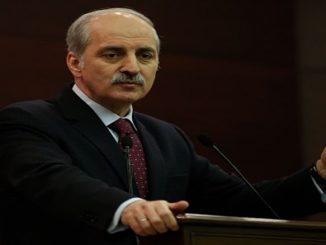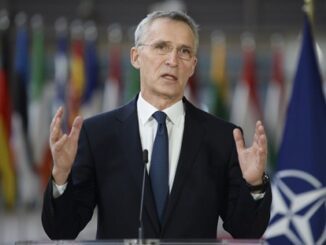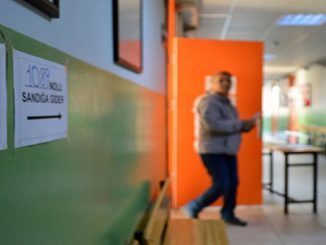The Syria peace talks in Astana started on Monday with tension between the regime and opposition delegations, who traded accusations and refused to meet each other or make direct talks.
Russian President Vladimir Putin said then that that Syrian opposition groups and the Syrian government had signed a number of documents including a ceasefire deal that will be guaranteed by Turkey and Russia.
The documents include a ceasefire agreement between the Syrian government and the opposition, measures to monitor the ceasefire deal and a statement on the readiness to start peace talks to settle the Syrian crisis, Putin said.
The ceasefire went into effect on December 29 but has been breached numerous times by Assad regime and the Iran-backed militias especially around Damascus city.
The opposition delegation said at first that they will not attend the talks in Astana due to the regime breaches, then said they will take part and focus on finding ways to maintain the ceasefire and protect the civilians.
“At this stage, we have one goal, which has been agreed upon by all the parties included. That is to consolidate the ceasefire. That is why we came here,” Osama Abu Zaid, spokesman for the Free Syrian Army, one of the rebel groups fighting Assad’s government, said.
Peace talks start with opposition refusal
After facing each other to make opening remarks on Monday, the rival delegations spent the rest of the day negotiating indirectly through intermediaries and at times trading blames.
Opposition spokesman Yahya al-Aridi said the rebels had refused of the first session of face-to-face negotiations on Monday, accusing the government of Bashar al-Assad of violating the December 30 truce deal brokered by Russia and Turkey.
“If there is seriousness in making these talks lead to something substantial, formality won’t be that important,” Aridi said.
“We haven’t seen any signs of commitment to the ceasefire; there should be clarity and agreement on this first.”
Syrian opposition officials also said they were focused on securing the current ceasefire, as well as getting humanitarian aid to people living under siege.
“The besieged areas should be relieved from the torture,” Aridi told Al Jazeera on Monday.
“Aid should reach these besieged areas and the principle of kneel or starve to death should also be humanely removed.”
When asked whether the rebels would sign an agreement to continue negotiations in February’s meeting in Geneva, Aridi replied: “It depends on the productivity and fruitfulness of these [Astana] talks. If they are quite successful, there could come a product, a political one, that could be used in the Geneva talks.”
However, rebels expressed optimism about Moscow’s position.
“We noticed a real understanding on the part of the Russians,” Yahya al-Aridi, an opposition spokesman, told reporters.
“We understand that militarily they have achieved what they wanted in Syria. Now they want to translate this military achievement into some sort of political deal. That has to be a ceasefire.”
Regime delegation responds
Bashar al-Jaafari, the head of the Syrian government delegation, also accused rebels of not keeping their end in the ceasefire deal – particularly in Wadi Barada, a strategic area in the Damascus suburbs and home to a major water facility.
In addition, Jaafari repeatedly referred to the rebel delegation as representatives of “terrorist armed groups” and said the agenda for the talks is “not ready yet”.
Jaafari also repeatedly referred to the rebel delegation as representatives of “terrorist armed groups” and said the agenda for the talks is “not ready yet”.
Alloush said the rebels were prepared to keep fighting if no deal was possible, and while a political solution to the civil war was the rebels’ preferred choice, it was not the only one. “We came here to reinforce the ceasefire as the first phase of this process,” he said. “We will not proceed to the next phases until this actually happens on the ground.” He described the Syrian government as a “terrorist entity”.
The Syrian crisis began as a peaceful demonstration against the injustice in Syria. Assad regime used to fire power and violence against the civilians and led to armed resistance. 450.000 Syrians lost their lives in the past five years according to UN estimates, and more than 12 million have lost their homes.



